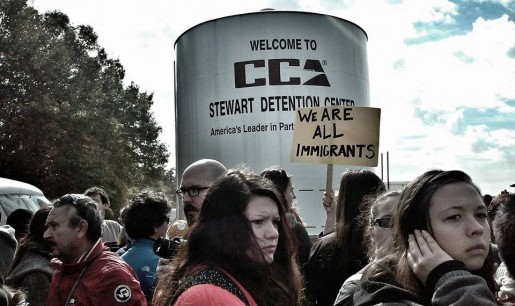The interdisciplinary field of Peace and Social Justice Studies focuses on practical questions of how to realize peace and justice in the everyday world. We are concerned with building peace with justice locally: with families, communities and organizations, and we also strive to reduce injustice and build peace nationally and internationally. Through our classes, programs and interactions, PSJ students and faculty seek to
- understand, respond, and reduce conflict on both individual and social levels
- develop approaches to and methods for prevention and resolution of war, genocide, terrorism, and violations of human rights and
- contribute to the development of social systems and societies that promote peace with social justice.
Peace and Social Justice Studies majors and minors are encouraged strongly to engage their studies in and beyond the classroom. We promote experiences in local and global partnership organizations and shared leadership in the Peace and Social Justice Studies Department.
What will I study?
Students in peace and social justice studies typically acquire a broad and comparative understanding of conflict, violence and peace. Our primary goal is the development of students’ knowledge and competencies in fields that contribute towards peace and social transformation. The department brings intellectual and experiential inquiry to the fundamental interrelationship between peace and justice.
Why should I study peace and social justice studies at Berea College?
-
Berea, Kentucky and Appalachia
Berea and our surrounding area offer tremendous teaching and learning resources for Peace and Social Justice Studies’ students. Because of the rich history of Berea College and responses to poverty and community development, this part of Central Appalachia has become a working laboratory for studying environmental and economic issues. Courses in this program typically include opportunities for community engagement and social change in Berea and Central Appalachia.
-
A Global Perspective
In the aftermath of 9/11, the study of peace with justice is increasingly significant for understanding and responding to the changes occurring in a world undergoing the processes of globalization. Peace and Social Justice Studies is a field that can be used to prepare oneself to participate critically and effectively in addressing the challenges of globalization that in one way or another will shape our future. Through internships and international travel, students enter into different cultures, work with human rights organizations and peace practitioners.
-
Participation in a Genuine Community of Learning
Peace and Social Justice Studies is not the only program at Berea College in which the ideal of a learning community is honored by both faculty and students. However, our program strives to be among the most innovative and dedicated in seeking to make this ideal become a living reality.
-
Campus Involvement
Peace and Social Justice Studies sponsors or co-sponsors numerous educational events and community activities to enrich and expand classroom work. Many Peace and Social Justice Studies students are involved in various campus organizations, such as People Who Care, the Muslim Student Association, African Students Association, Hispanic Student Association, Student For a Free Tibet, Harvey Milk Society, Bereans for Appalachia, HEAL, Black Student Union and others dedicated in various ways to the ongoing struggle for community and social justice.
-
Caux Scholar Program
Berea students are invited to apply for the Caux Scholar program. The program convenes in Caux, Switzerland, at the international conference center for Initiatives of Change, Mountain House, for an intensive studies program in applied peacemaking.
What can I do with this degree?
A major or minor in Peace and Social Justice Studies opens many doors and career paths as you develop your knowledge and practice of peace-building. As a graduate, you can:
- Pursue graduate studies in Peace and Conflict Studies, Social Work, Public Administration, Anthropology, Political Science, Sociology, Public Health and others
- Work as an organizer, social worker, public-interest lawyer, researcher
- Teach in primary school, secondary school, college or university
- Participate in community action work
- Serve with volunteer and nonprofit organizations

